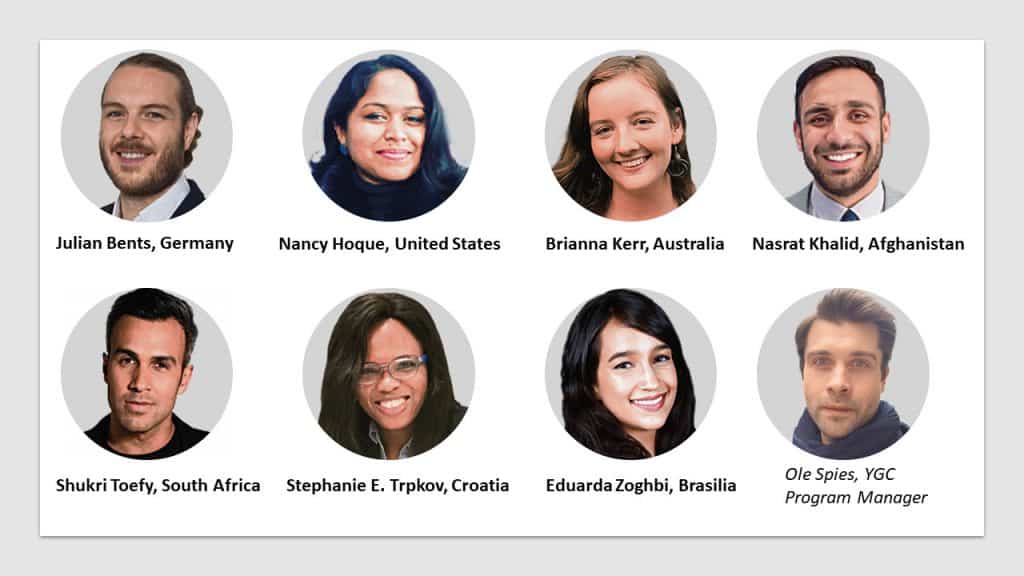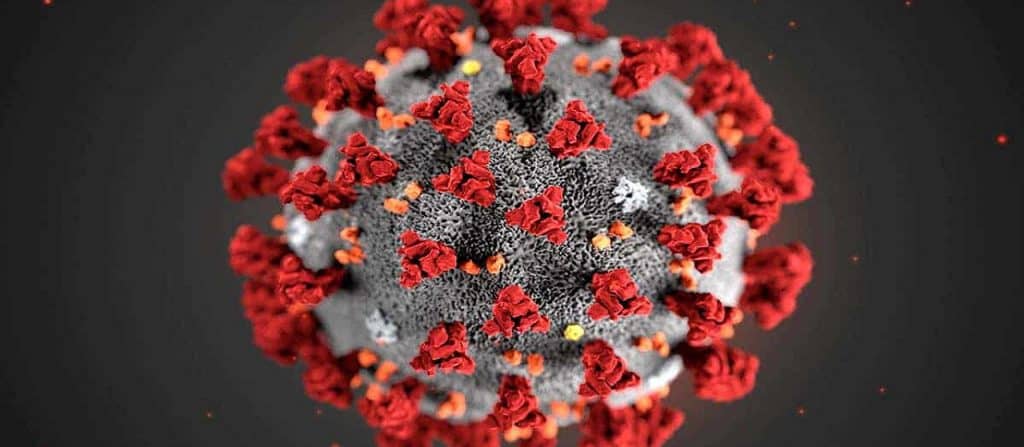An Article by the Young Global Changers Ambassadors.
The Young Global Changers is a dynamic network of over 350 young people from all continents, and regions of the world, representing more than 110 different countries. Many of us are engaged in movements and initiatives to bring about positive change, locally, regionally and globally.
In the past and still today we are demanding from older generations solidarity and immediate action, especially with regards to the ongoing climate crisis, so that we too have a prosperous future. Currently, the most urgent issue for the world is the COVID-19 pandemic. So far, the virus has disproportionally affected the elderly and has mostly spared the younger generation. In times like these it is on us to act in full solidarity with the most vulnerable to ensure a future for all of us.
Those who have the privilige to be able to stay at home, can show their solidarity by practicing social distancing. But our solidarity should also go beyond acting as individualized units in indivdual homes. There is plenty for us to do together, to make sure that we navigate this crisis successfully and that we come out stronger on the other side. The Young Global Changers network represents a diverse alliance: We are young activists, organizers, innovators, entrepreneurs, intrapreneurs, researchers, academics, students and more. There are many ways in which we can do our part in this crisis.
What is to be done?
Current global health supply chains and support systems are unfortunately incapable of handling this pandemic. Occurring at a point in time when the global health system is already broken it has led to a staggering death toll (at the time of pulication of more than 121,000) and it is growing daily. As governments, global health institutions, international development organizations and emergency relief organizations are using their resources to respond to the problems, it is evident that we still have multiple gaps throughout the response system, and it is upon us to fill those gaps with innovative and practical ideas.
From the initial rounds of discussion, the below considerations have come through:
1) Help to spread credible information. Make people aware of the risks and dangers of the current situation by pointing them towards reliable information. (Basic protective measures against the new coronavirus from the WHO can be found here. More information from the World Health Organization can be found here.)
2) Support efforts to provide protection and relief around the world. As medical workers throughout the world are fighting COVID19 and working around the clock to save lives they are facing a shortage of personal protection equipment (PPE) that in turn can jeopardize their safety. Essential supplies such as gowns, masks, hand sanitizers, and other necessities, are important tools to prevent the virus from spreading while equipment like ventilators which are currently in short supply globally can assist in saving lives. This is especially the case in countries with underdeveloped infrastructure. Although the shortage of the resources may not be an issue in the long term for developed countries, much of the world does not have the resources to produce or acquire these goods. The effect of the COVID19 epidemic may have broad, long-term implications, so our response must be inclusive.
3) Stay politically engaged. For most people around the world, especially in less developed regions, social distancing is not a viable option. Structural support is lacking. This is also true for many industrialized nations with large low-wage sectors and no adequate social safety nets. The situation is starkest in countries and regions where a significant number of people, particularly women and children, are constantly living in unsafe conditions, without structural support and proper access to healthcare. Especially dire is the situation in refugee camps around the world. The failure to address underlying causes for these conditions in the time before the crisis has now significantly magnified the problems and we need to address them quickly.
4) Stay critical, diligent and alert. Let us monitor closely and critically the current calls for consolidation of power and ‘strong leadership’ and make sure that this does not extend to more than what is necessary to navigate the crisis. This includes paying close attention to the current limitations of essential rights such as the freedom to move, freedom of speech and freedom of association. We must make sure that these infringements do not outlive this crisis and linger on in the post-pandemic world to come.
5) Look at implications – and at causes. This includes looking at the economic recovery plans and making sure they are comprehensive and not just a bail out for those declared too big to fail. This must also include looking critically at all the structural causes that made the corona virus crisis so disastrous in the first place. In a recent article Dennis Snower, the president of the Global Solutions Initiative, pointed out that we ‘should have seen this pandemic coming a long time ago’. He quotes several reports (here, here, and here) which point to phenomena like the intensification of agriculture, increasing urbanization, expansion into wild frontiers, overcrowded and unsanitary living conditions for many, rise in global temperatures and higher levels of conflict throughout the world as risk factors for a pandemic. These underlying causes and accelerators of the crisis need to be addressed.
6) Call for international collaboration and solidarity. The UN Secretary General recently called on world leaders “to come together and offer an urgent and coordinated response to this global crisis.” We could not agree more. What we currently need is not more “America First”, “India First”, “Brazil First” or “Germany First”, … – what we need is more international coordination, cooperation and international solidarity.
7) Stay creative and innovative and come up with solutions ourselves and/or support initiatives that are taking on these tasks. For the technologically minded innovators among us check out the CoVent-19 Challenge – an open innovation effort to design a rapidly deployable mechanical ventilator.
8) Remember that other problems of our world will not just go away. We need to continue our ongoing struggle to combat climate change and push for climate justice alongside the many other pressing global challenges. The Young Global Changers are specifically involved in projects, intiatives and activities that work against the ongoing ‘decoupling’ of economic prosperity, environmental performance and social prosperity and push for an alignment of these three areas. These efforts must continue and must be part of our response to the current crisis.
YGC Actions Moving Forward:
- Disseminate the work our fellow YGC are doing to tackle Covid-19 in their countries by committing to share in our social media and use the #YGCAgainstCOVID19
- Identify crowdfunding and other donations our network is involved with to mobilize more people globally to help those who need the most. One of the advantages of our vast representation is having young people engaged in vulnerable communities everywhere.
- Support initiatives that are working to reduce the rise of domestic violence and abuse of vulnerable members of society due to the measures to contain Covid-19 and the economic impact
- Build new competencies such as conflict management, crisis communication, wellbeing strategies, etc., to help strengthen the self and effectively help others in the community
- Fundraise for YGC initiatives that target Covid-19 in order to support the efforts of young people to combat the virus effects.
- Write about the important issues and spread the word. For example, on the YGC Blog
- Follow Young Global Changers on Instagram, Facebook and LinkedIn to spread the word on relevant initiatives
___
The views and opinions expressed in this article are those of the authors and do not necessarily reflect the views of the Global Solutions Initiative.
___
The Young Global Changers Ambassadors


